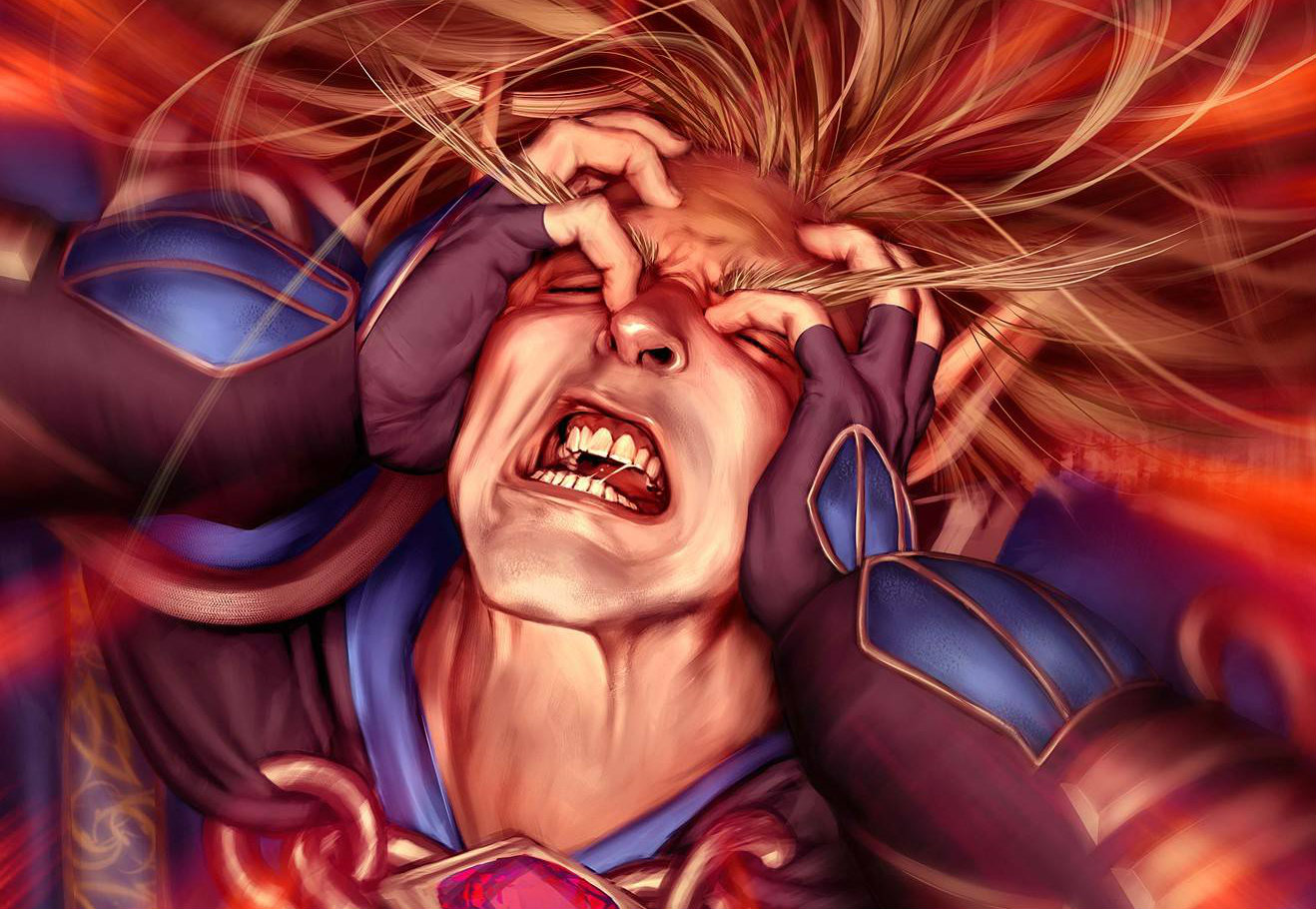
Anyone who’s spent enough time on the Hearthstone ladder will know how bad it feels to go on a losing streak. The rage builds, you play faster trying to recoup those precious stars, and make worse decisions leading to more losses. You’re on tilt, and it feels bad man. In this article, I’ll teach you how to deal with tilt and other mental obstacles in order to consistently perform to the best of your ability.
Before we begin, I'm going to assume you're not deliberately playing a terrible deck, and that you’ve invested some effort in learning how to play it. From that point, the biggest obstacles in your way are internal. The first thing to realize is that ladder climbing is not a competition against the other players. It's a time trial. Your opponents don't know who you are. You will never meet again. They will not adapt to your style, deck choice or tactics. The only things dictating your win-rate are your skill level and deck selection. Play well enough for long enough and you will hit the rank you want.
What is tilt?
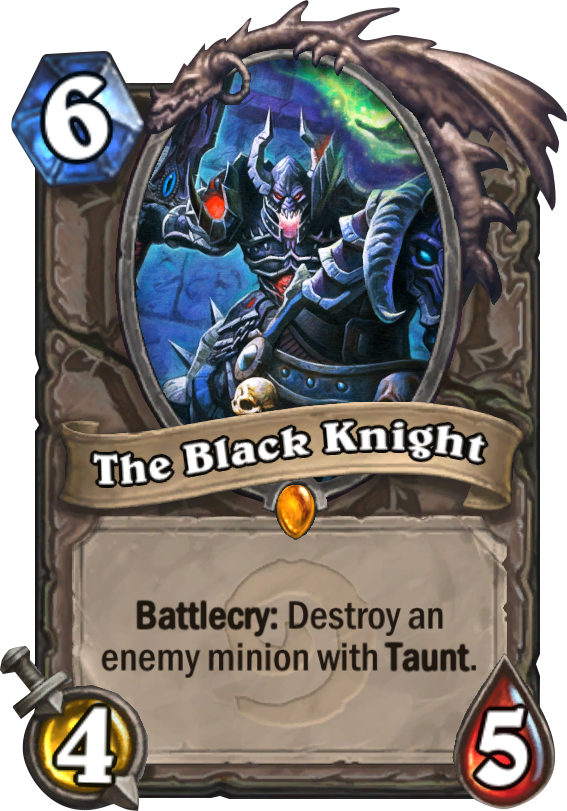
Tilt is an emotional state brought about by a loss, or series of losses, which you perceive to be unfair. That feeling can be caused by the type of deck you faced (“Ugh, aggro Shaman is so cheesy”), your bad luck (“Why is my Golden Monkey always the last card?”), your opponent’s good luck (“he needed that exact card”) or even tech cards (“why did I face the only guy who still runs The Black Knight?”).
Regardless of the reason, when you’re on tilt it feels like you’re owed. The universe screwed you, and now it's time for it to make amends. This is, in essence, a variation of the gambler's fallacy, which causes reckless decisions because subconsciously we feel a game's more likely to pay off when we're 'due' good luck. And when those plays don't pay off, the feeling of unfairness only intensifies, leading to a spiral of losses.
How to avoid tilt
The root cause of going on tilt is this feeling of unfairness, so it helps to actively note all the instances when you get lucky. Losing to a topdecked lethal will sting less if you remind yourself you topdecked lethal yourself two games ago. Try to keep track of everything that goes well for you, whether it’s drawing Fiery War Axe on turn two, queuing into a favorable matchup, or your opponent not having the board clear they need. It won’t prevent tilt completely, but should help mitigate the effects.
The second half of avoiding tilt is assessing just how unfair the situation really was. Let's say you're on 4 life and a Druid topdecks Swipe for lethal. It's less aggravating when you stop and consider that you would also lose to Druid of the Claw, Ragnaros or C'Thun, and that your opponent’s hand might have included cycle cards to give them more ways to draw these remaining 'outs'. Sometimes you will just be undone by a super lucky draw, but try to consider the context of the rest of the game.
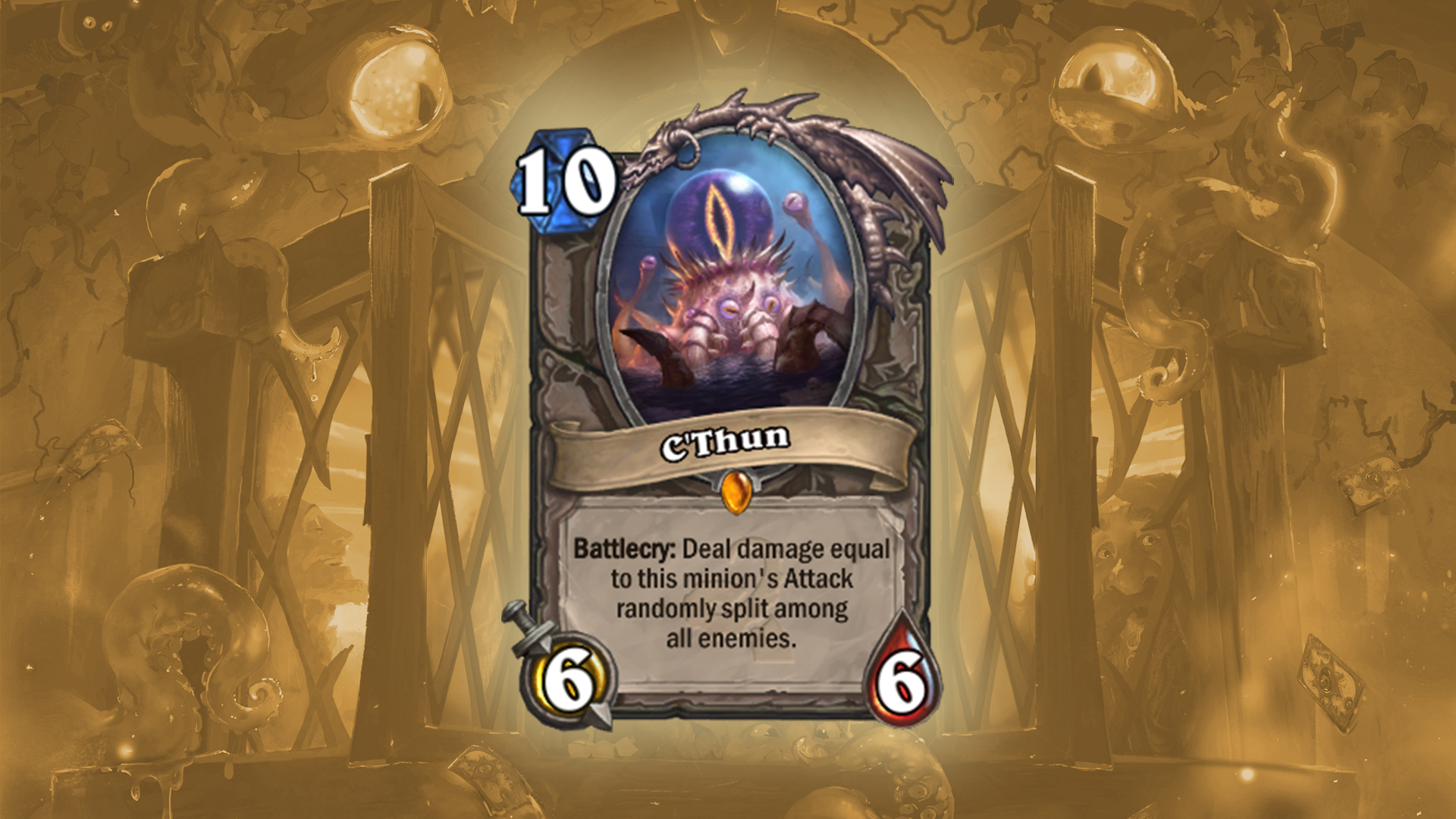
Handling tilt when it happens
For most of us, tilt is recognized in hindsight, if at all. To avoid going into a vicious cycle, it helps to pace yourself. You can decide to always have a short break, say 30-60 seconds, after each loss, during which it's best to do something unrelated (stand up, get a glass of water, or even just stare at the wall). That's often enough to regain the composure to be able to identify whether your mentality is falling into the feeling of unfairness pattern, and avoid it.
Keep up to date with the most important stories and the best deals, as picked by the PC Gamer team.
More importantly, you should stop playing the game (take a long break, an hour or so) after suffering a number of losses in a row. Three is what I personally use. While you can reasonably expect to lose three games in a row even while boasting a 65% win-rate—in fact, it's expected to happen after 35 games—it’s likely that you're not playing optimally, and the outcome will be going on tilt. Here are some other mental obstacles to be aware of...
The trap of negative thinking
Once you start thinking that the world is out to get you, that your opponents always have the perfect curve and draw the exact cards they need, it will poison all your decisions. Negative thinking will skew your mulligan decisions and lines of play to be very reactive, because mentally you’re preparing for the worst every turn. As with tilt, the way to deal with negative thinking is by focusing on positive things that have happened in your games, and taking breaks where necessary.
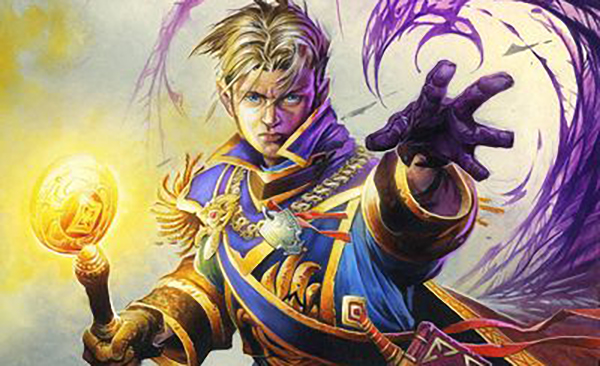
Identifying confirmation bias
Confirmation bias is the brain's tendency to remember things that reaffirm our existing beliefs, and forget or discount things that weaken those beliefs. For example, I may believe everyone will now play Priest if Tempostorm places it in Tier One of the latest Meta Snapshot. (Hey, it could happen.) So, whenever I encounter a Priest on ladder, I'll mentally pat myself on the back for making the right read, and the times I face other classes will diminish in my mind. Pretty soon I'll have a skewed perspective of the meta that leads to me teching my deck heavily against Priest, to the detriment of my win rate.
Humans are hard-wired to be afraid of taking chances.
It gets worse: I'll also tend to remember more vividly the time my tech cards paid off, because they feel spectacular, and forget about the other times those cards rotted in my hand when facing other classes. The way to avoid confirmation bias is simple: don't rely on your memory. When it comes to the meta, refer to online resources such as the excellent Data Reaper report. When testing out tech cards or countering meta decks, stats beat gut feel every time. Which is why you should really be using a deck tracker.
Fear of losing
Humans are hard-wired to be afraid of taking chances. Most people will prefer to avoid even money bets or even slightly favorable gambles. In Hearthstone, this can cause you to take unnecessarily defensive lines of play, which often leads to otherwise close games becoming slow losses. It's a slippery way to lose your win percentage, because it's difficult to gauge the real risk of a situation without knowing the other player’s hand, so even when reviewing games the risk may remain hidden.
The way to combat the fear of losing is first to articulate the risk. Explain to yourself why you're clearing the board instead of going face, or why it's important to use an AoE spell this turn and not the next. This simple trick forces you to think rationally, rather than give in to the general feeling of unease we all get when taking risks. The other thing you can do is watch better players play and note when they choose more risky lines of play. This can calibrate your intuition so you're less likely to be timid even when not thinking about it explicitly.
Playing on auto pilot
Our brains are essentially comprised of two systems, a quick inaccurate one, and a slower more accurate one. The quicker one is what's engaged when solving problems fast without really thinking about them. In Hearthstone, this translates to making the obvious plays: taking the good trade, coining out a 2-drop into another 2-drop, etc. Playing like that isn’t necessarily bad, but it's important to remember that you won't improve if you keep making the first good move that occurs to you.
Concentration is a limited resource
If you're not satisfied with your win-rate, you should be thinking about every turn longer than you want to. Articulate what the alternatives are and why you've picked the option you have. This will force you to engage your slower mind, which will in the long run result in better autopilot decisions. Again, it's important to take regular breaks. Concentration is a limited resource—there's a reason why you’re given a short break between lectures at school. Playing 50 minutes out of every hour will improve your concentration, which will, in turn, make sure you have more energy to think through your plays.
Tunnel vision
Similar to playing on autopilot, tunnel vision involves missing certain types of play due to unconsciously making assumptions. For instance, let’s say you're playing against an aggressive deck and have been trying to stabilize all game. You spend your entire turn deciding on the best attacks to clear the enemy's board, but don’t notice you could go face for lethal. In this case, articulating your reasoning won't help, since it won't expose the hidden assumption you're making. The best way to combat tunnel vision is to routinely go through a mental checklist on each turn: do I have lethal? Does my opponent have lethal if I pass? Etc. You can find a great guide to checklists here.
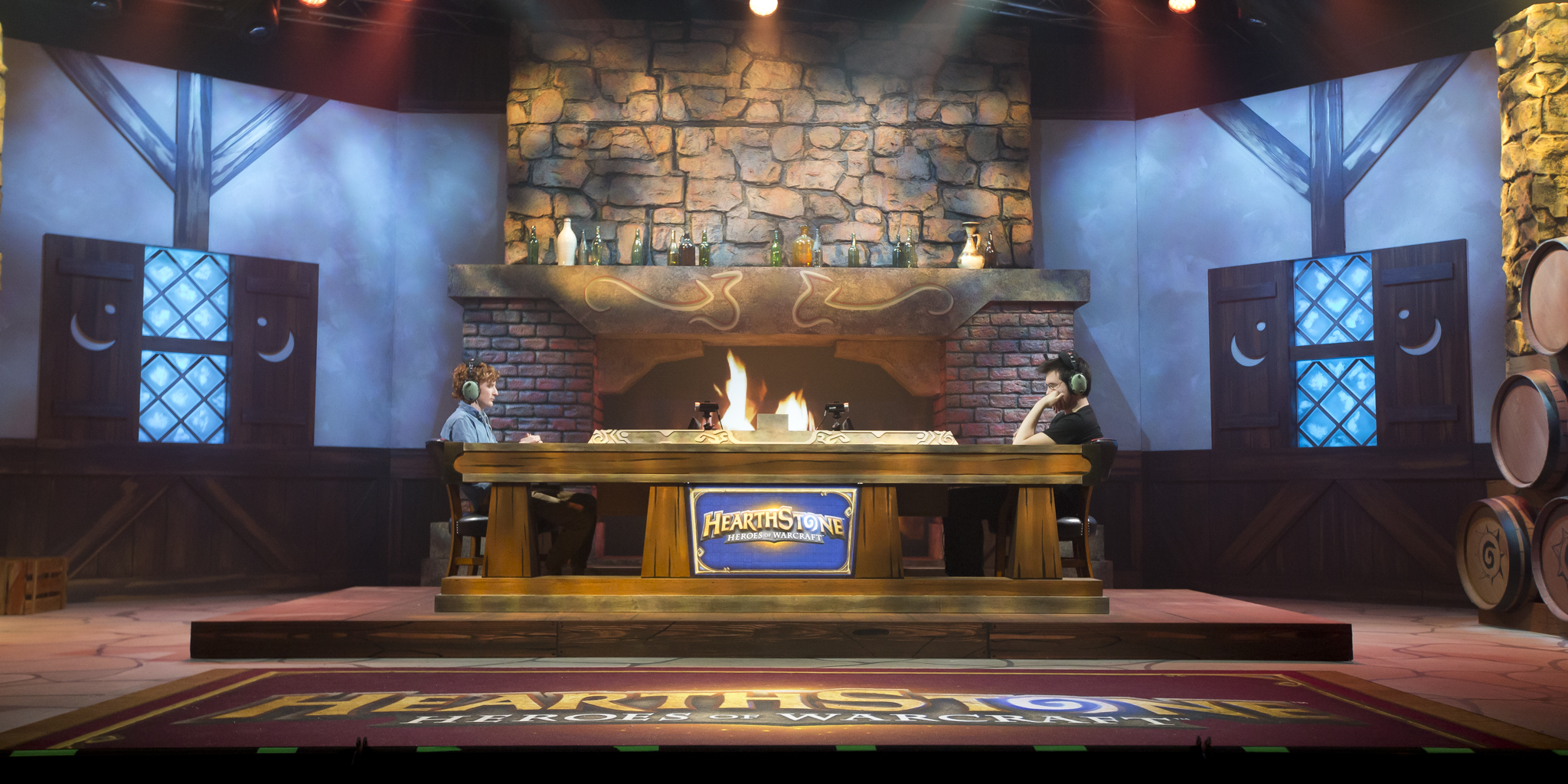
Ladder anxiety
This is a lack of desire to play which is most commonly encountered after success. Maybe you feel like you're on a roll and don't want to jinx it by playing again. Maybe you just hit the highest rank you’ve ever reached, and don't want to risk dropping. Whatever the reason, if you haven't reached your ultimate goal, you have to keep playing to get there.
Ladder anxiety can be considered a sort of reverse-tilt. Instead of feeling you were screwed unjustly, you feel your success was an accident. To mentally offset that, you can assure yourself that your win-rate over many games is unlikely to be coincidental, or remind yourself of your ultimate goal and how good it will feel to get there.
More practically, you can structure your play sessions. Play a fixed number of games (assuming no interruptions due to losing-streaks) each time, only considering stopping when you're done with the designated batch of games. This gives less weight to individual games and makes the whole thing seem more routine, which offsets the tendency to 'quit while I'm ahead'.
Closing thoughts
Our brains were not designed to play Hearthstone or any other competitive game. Several of our survival traits can be detrimental to such activities. I hope you've recognized some of the mental obstacles described above in yourself, because if so the tips will be helpful to fight those tendencies. Feel free to offer any other observations or advice in the comments, and good luck out there on the ladder. Even though you won’t need it in the end.
A version of this article was originally posted on r/competitivehs. The edited version is republished here with permission.

